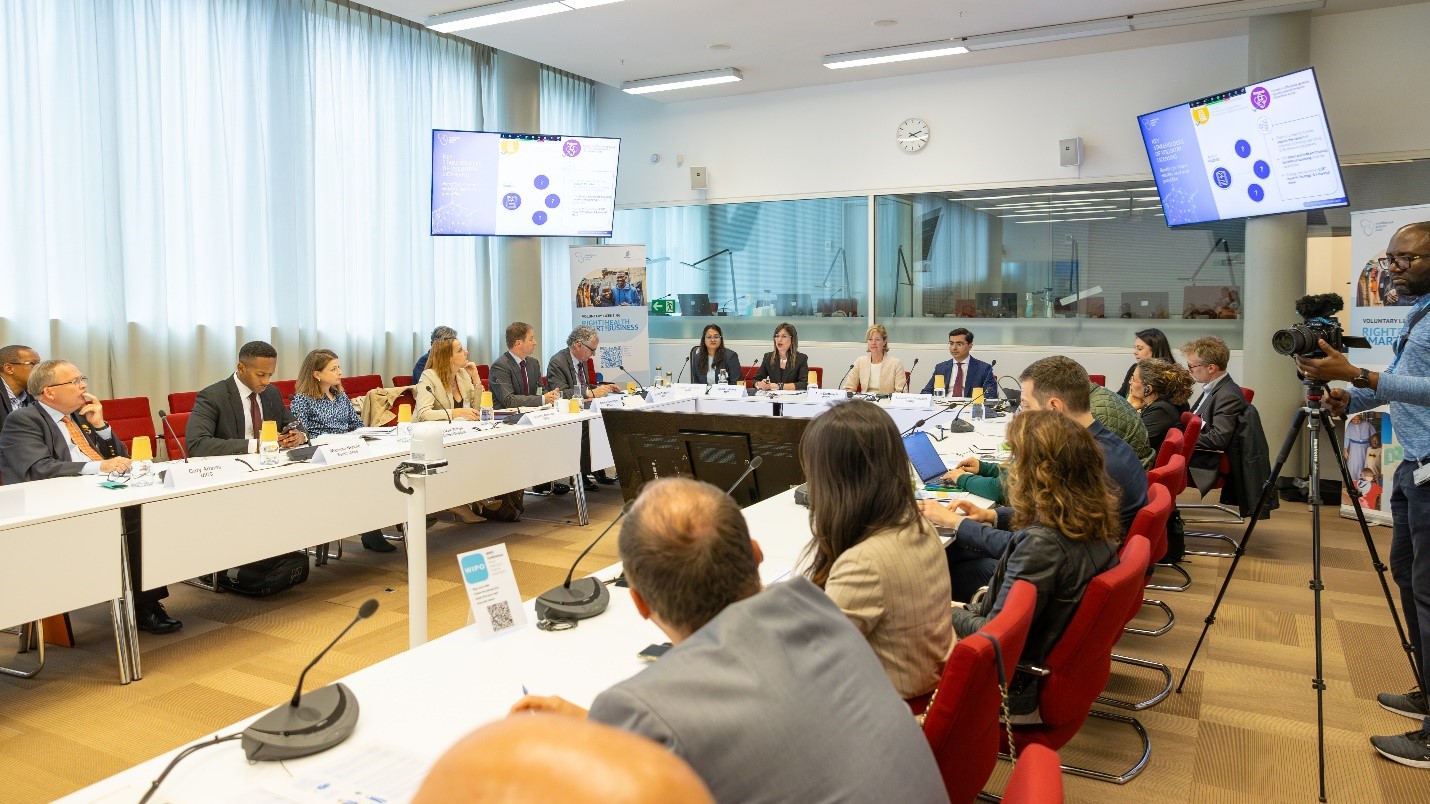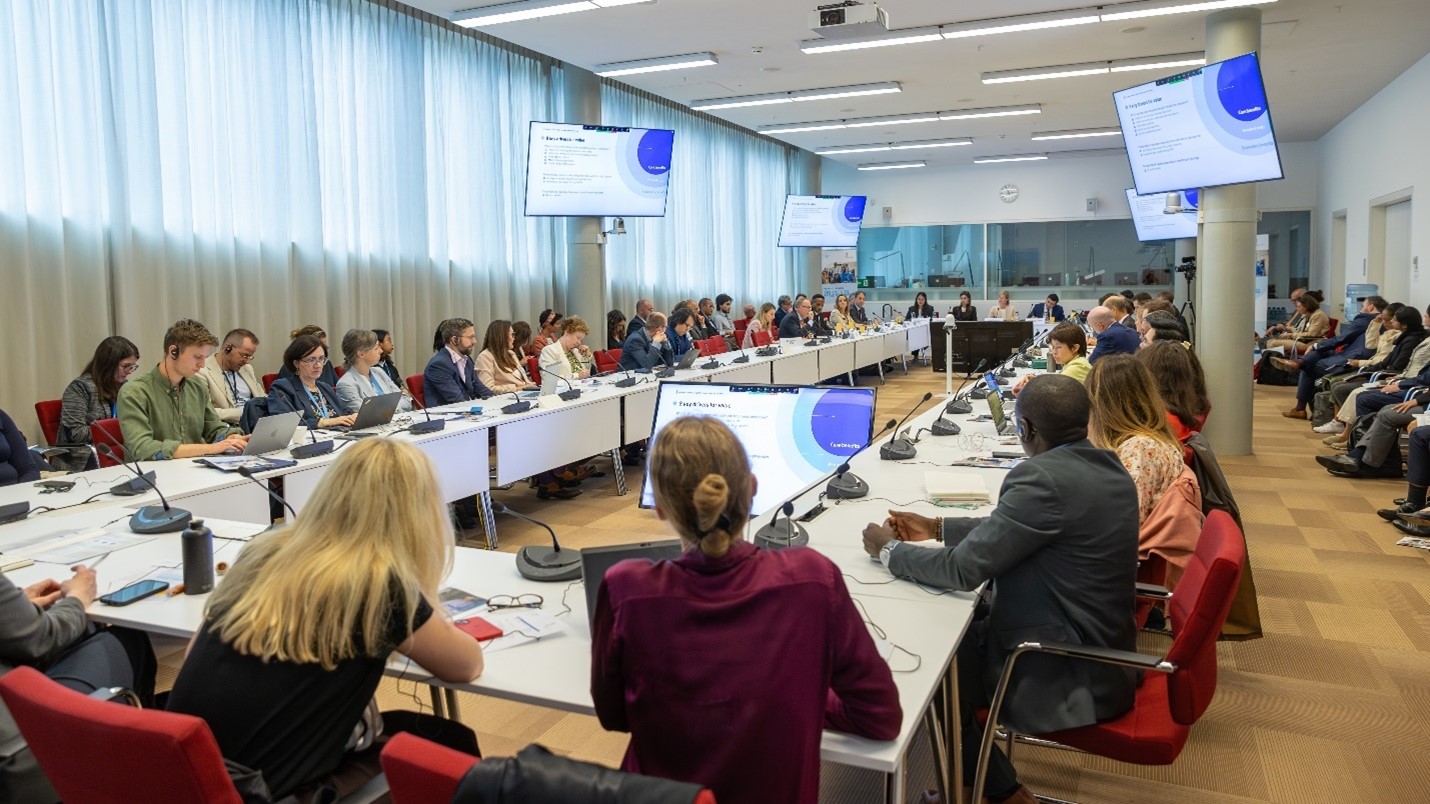New Study by Medicines Patent Pool Highlights Benefits of Voluntary Licensing to Tackle Non-Communicable Diseases
June 3, 2024
A new study commissioned by the Medicines Patent Pool (MPP) highlights how voluntary licensing (VL) advances global health while being commercially viable for biopharmaceutical companies.
Undertaken by Boston Consulting Group (BCG) and co-funded by the World Intellectual Property Organization (WIPO) along with the Government of Canada, the study presents evidence that voluntary licensing is an effective, commercially attractive mechanism for addressing global health disparities, especially in low and middle-income countries (LMICs). Using both qualitative and quantitative analyses, it illustrates how voluntary licensing advances access to medical products across multiple geographies while offering economic benefits for biopharmaceutical companies.

The study was discussed during a roundtable event on May 29th, 2024, at WIPO. Panelists considered the benefits of VL, including increased patient reach, access to new patient segments, and potential for revenue growth for biopharmaceutical companies.
The roundtable discussions addressed the importance of implementing VL in a strategic manner. This could, for instance, assist in avoiding revenue losses associated with product diversification, given that annual yearly revenue loss is estimated between US$ 2 million per LMIC and US$ 8 million per upper middle-income countries (UMIC). The discussion also highlighted VL’s potential to contribute to health equity. Additionally, VL’s ability to influence market dynamics by shaping capabilities in developing countries, including adaptability in infrastructure, manufacturing, supply chain, and healthcare ecosystems, was also noted. Complexities in access to medicines in LMICs was also acknowledged, including regulatory complexities in entering the market. Despite these challenges, however, discussants agreed that VL is well positioned as a critical element in the overall solution for ensuring access to medicines in LMICs.
Key findings from the study:
- Opportunity for voluntary licensing on Non-Communicable Diseases (NCDs): A significant opportunity arises in extending voluntary licensing beyond the traditional focus on infectious diseases like HIV and COVID-19 to NCDs, which account for 74% of global deaths. These diseases include diabetes, cancer, and cardiovascular and respiratory diseases.
- Commercial benefits for drug manufacturers: According to the report, expanding voluntary licensing to include NCD medications could not only increase patient reach but also potentially enhance revenue for originators in upper-middle-income countries (UMICs) by 2% to 17%.
- Enhancing patient reach and access: The analysis shows that non-originator products reach approximately four times more patients than originator products in the studied markets, emphasizing the impact of licensing on patient diversity and data collection for Real-World Evidence (RWE) corpus on a licensed product.
- Workforce benefits: Implementing health equity strategies such as voluntary licensing could decrease employee attrition rates by 1%, leading to substantial cost savings estimated between US$ 7 million and US$ 50 million depending on the biopharmaceutical company’s scale and size.
- Financial incentives through SLBs: The study illustrates that sustainable licensing bonds (SLBs) used in voluntary licensing agreements offer lower interest rates, thereby reducing borrowing costs for biopharmaceutical companies.
- Efficiency of MPP’s Licensing Model: MPP’s approach to managing licensing agreements – which require a high level of trust, partnership, and investment by both the originator and recipient parties – is shown to prevent unauthorized sales and product diversion, potentially saving millions in annual revenue losses across different countries.

About MPP
The Medicines Patent Pool is a United Nations-backed public health organization focused on increasing access to and facilitating the development of life-saving medicines for low- and middle-income countries.
About WIPO
The World Intellectual Property Organization, a specialized agency of the United Nations, works towards a balanced and accessible international intellectual property system that stimulates innovation and creativity.